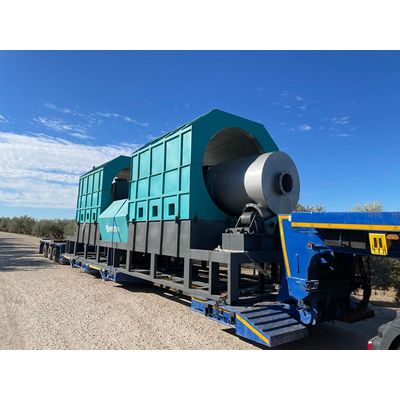

- Home
- Companies
- Beston Group Co., Ltd.
- Articles
- Realizing the Potential of Coconut ...

Realizing the Potential of Coconut Shell Charcoal Making Machine
Introduction
The Role of Coconut Shell Charcoal in Various Industries
Coconut shell charcoal, known for its high calorific value and low ash content, has gained prominence across diverse industries. From metallurgy to water purification and culinary applications, the demand for high-quality coconut shell charcoal is on the rise.
The Significance of Efficient Charcoal Making Processes
Efficiency in charcoal production is critical, not only for meeting the growing demand but also for environmental sustainability. This article explores how coconut shell charcoal making machine is revolutionizing the production process, maximizing output while minimizing waste.
Understanding Coconut Shell Charcoal Making
The Science Behind Pyrolysis and Charcoal Production
Charcoal making from coconut shells relies on the process of pyrolysis—a high-temperature, oxygen-starved environment that converts biomass into charcoal. Understanding this scientific principle is essential for optimizing the process.
Feedstock Selection: Why Coconut Shells are Ideal
Coconut shells are an excellent feedstock for charcoal production due to their high carbon content and low moisture content. Their availability as a byproduct of the coconut industry further enhances their appeal.
The Transformation Process: From Shells to Charcoal
The coconut shell charcoal making machine initiates the pyrolysis process, where coconut shells are heated to extreme temperatures. During this transformation, volatile compounds are driven off, leaving behind high-quality charcoal.
Key Features of Coconut Shell Charcoal Making Machines
High-Temperature Pyrolysis Chambers
Modern machines are equipped with high-temperature pyrolysis chambers that ensure efficient conversion of coconut shells into charcoal. These chambers are designed for maximum heat retention and controlled pyrolysis conditions.
Advanced Emission Control Systems
Environmental considerations are paramount. Effective emission control systems prevent harmful gases from escaping during the pyrolysis process, ensuring that the production remains eco-friendly.
Automation and Control Technology
Automation features and precise control technology allow operators to monitor and adjust the pyrolysis process, ensuring consistent quality and higher productivity.
Environmental and Economic Benefits
Reduced Waste and Deforestation
Coconut shell charcoal production significantly reduces waste and minimizes the need for deforestation, as it utilizes a readily available agricultural byproduct.
Sustainable Energy Production
Beyond charcoal, coconut shell pyrolysis generates syngas, which can be harnessed for sustainable energy production, reducing the reliance on fossil fuels.
Economic Opportunities and Carbon Credits
Investing in charcoal making machine not only presents economic opportunities but also opens doors to carbon credit programs, further incentivizing sustainable practices.
Applications and Industries
The Role of Coconut Shell Charcoal in Metallurgy
Coconut shell charcoal is an essential reductant in metallurgical processes, particularly in the production of high-quality steel.
Activated Carbon Production for Water Purification
The high porosity of coconut shell charcoal makes it an ideal material for producing activated carbon used in water purification systems.
Barbecue and Cooking Industry: Flavor-Enhancing Charcoal
In the culinary world, coconut shell charcoal is prized for its ability to infuse food with a unique, smoky flavor, making it a preferred choice for grilling and cooking.
Maximizing Efficiency and Output
Proper Maintenance and Cleaning Procedures
Regular maintenance and cleaning of the coconut shell charcoal making machine are vital to ensure consistent performance and prolong its lifespan.
Feedstock Preparation and Quality Control
Proper preparation of coconut shells and rigorous quality control measures are essential for obtaining high-quality charcoal.
Scaling Up for Industrial Production
For industrial-scale production, careful planning and scaling up of the process are necessary to meet the demands of various industries while maintaining efficiency.
In conclusion, the potential of coconut shell charcoal making machines extends far beyond traditional uses. These machines play a pivotal role in meeting the demand for high-quality charcoal while promoting environmental sustainability and creating economic opportunities. Understanding the science, embracing advanced technology, and exploring diverse applications are key to realizing the full potential of this innovative industry.
